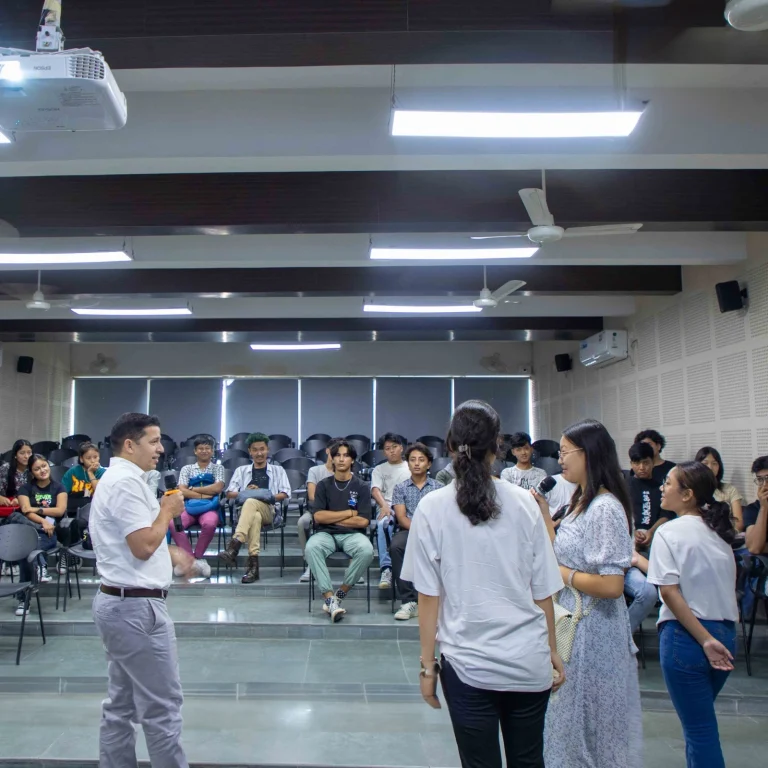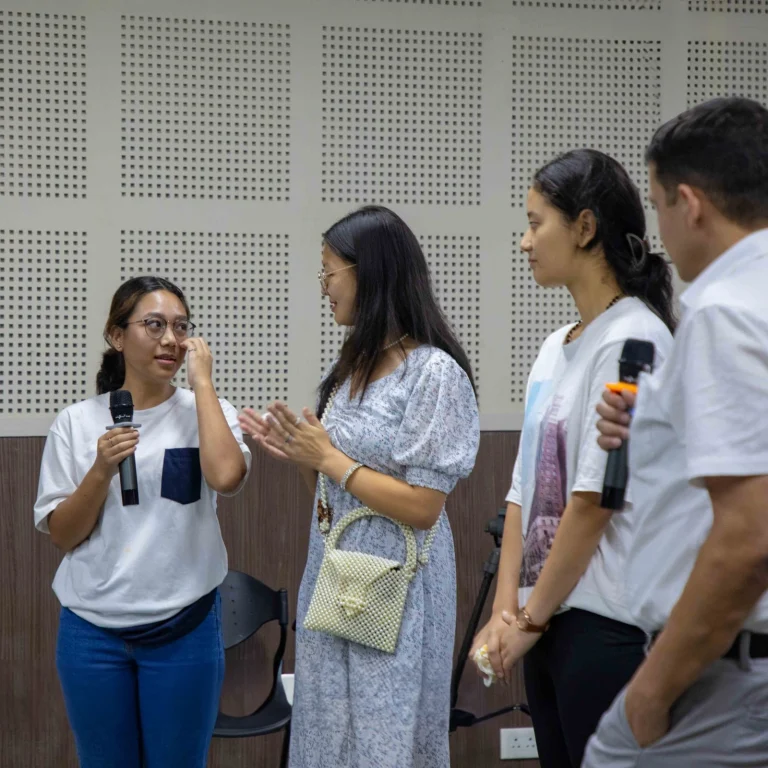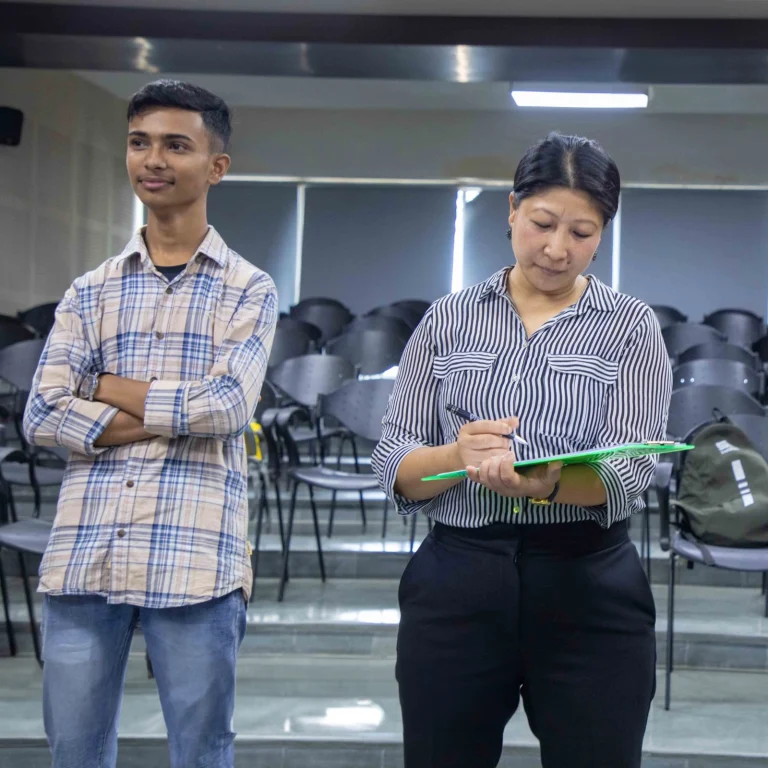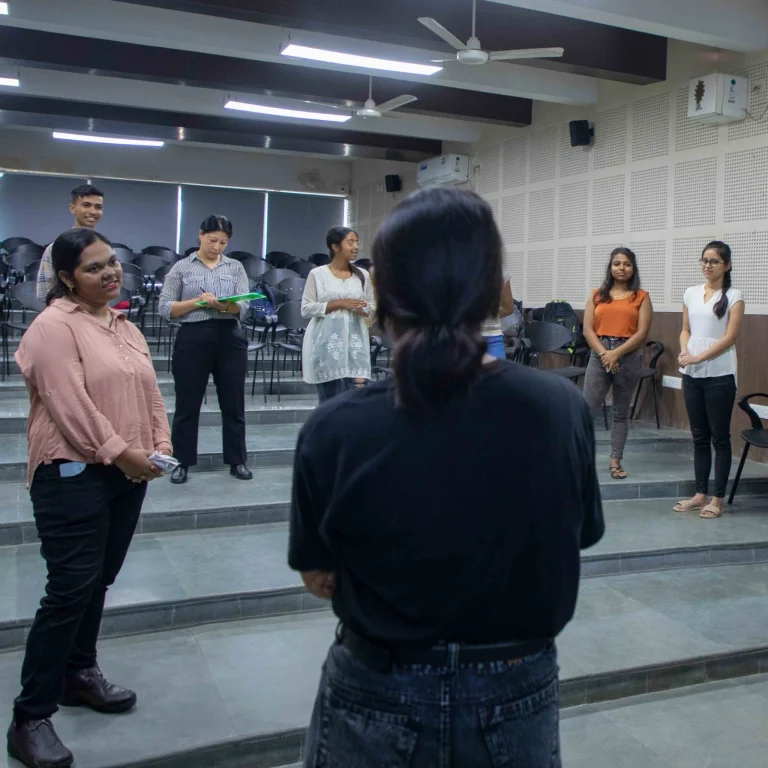College life is a fascinating blend of academic pursuits, friendships, and self-discovery. As Soft skill trainers at Inspiria, my partner Geetanjali (who is also my wife) and I had the privilege of observing college students closely, particularly during her teaching sessions. It was during these Soft Skills Training courses we truly understood the significance of soft skills in their lives.
In today’s fast-paced and interconnected world, the significance of soft skills has never been greater. While technical knowledge from courses like Data Science Courses and BBA Digital Marketing remains crucial, it’s the soft skills that often set individuals apart in their personal and professional lives. Soft skills courses are essential components of modern education. These encompass a wide range of personal attributes and interpersonal abilities that enable effective communication, collaboration, and adaptability. In this blog, we’ll delve into the realm of soft skills, exploring their importance, types, and soft skills training tips for enhancing them.
What are Soft Skills?
Soft skills are a set of personal attributes and interpersonal abilities that enable effective communication, collaboration, and adaptability in various aspects of life. Unlike hard skills, which are teachable and measurable abilities related to specific tasks or technical expertise, soft skills are more intangible and encompass qualities such as empathy, emotional intelligence, communication, teamwork, problem-solving, time management, adaptability, and leadership.
These skills are essential for navigating social interactions, managing relationships, and succeeding in personal and professional environments. Soft skills enable individuals to communicate clearly, listen actively, work well within teams, resolve conflicts, manage time efficiently, embrace change, and lead others effectively.
In today’s fast-paced and interconnected world, the importance of soft skills has become increasingly recognized. They are crucial for individuals to differentiate themselves in the workplace, build strong relationships, and adapt to evolving challenges and opportunities. Therefore, investing in the development of soft skills through training, practice, and real-world experiences is essential for personal growth and success in various spheres of life.
Types of Soft Skills

There are various types of soft skills, each playing a distinct role in personal and professional development. Some common types of soft skills include:
Communication
The ability to convey information clearly, listen actively, and adapt communication style based on the audience. Effective communication skills are essential for building relationships, resolving conflicts, and conveying ideas persuasively.
Teamwork
Collaborating effectively within a group, contributing ideas, and respecting the opinions of others. Teamwork involves fostering a cooperative and supportive environment to achieve common goals.
Leadership
Guiding and motivating others, taking initiative, and managing conflicts within a team. Leadership soft skills are essential for inspiring and influencing individuals to work towards a shared vision or objective.
Problem-Solving
Analysing issues, finding creative solutions, and making decisions based on critical thinking. Problem-solving skills enable individuals to navigate challenges, overcome obstacles, and make informed decisions.
Adaptability
Being open to change, quickly learning new skills, and adjusting to evolving situations. Adaptability is crucial in today’s dynamic and unpredictable world, allowing individuals to thrive in diverse environments and circumstances.
Time Management
Organising tasks, prioritising responsibilities, and meeting deadlines efficiently. Effective time management skills enable individuals to maximise productivity, minimise stress, and achieve work-life balance.
Emotional Intelligence
Understanding and managing one’s emotions, as well as recognizing and empathising with the emotions of others. Emotional intelligence fosters self-awareness, social awareness, and interpersonal relationships.
Creativity
Thinking innovatively, generating new ideas, and approaching challenges from different perspectives. Creativity is essential for problem-solving, decision-making, and driving innovation.
Conflict Resolution
Resolving disagreements and disputes in a constructive and mutually beneficial manner. Conflict resolution skills involve effective communication, active listening, and negotiation techniques.
Critical Thinking
Analysing information, evaluating arguments, and making reasoned judgments. Critical thinking skills enable individuals to assess situations objectively, identify underlying assumptions, and make informed decisions.
Developing a well-rounded skill set that encompasses these various types of soft skills is essential for personal growth, career advancement, and success in today’s interconnected and rapidly changing world.
Importance and Relevance of Soft Skills
Beyond academic achievements, soft skills play a pivotal role in shaping a student’s personality and their journey towards becoming a well-rounded individual. We noticed that students with excellent soft skills exhibited effective communication skills, not only with their peers but also with their professors and the outside world. They were proactive in taking leadership roles and excelled in team-based projects.
Additionally, students who demonstrated empathy and emotional intelligence had stronger relationships with their peers and were better equipped to handle conflicts. We realised that possessing these skills was instrumental in reducing stress and creating a positive atmosphere within the college community.


It was heartening to see students with strong soft skills thriving not only academically but also in their personal lives. They exuded confidence, took initiative, and showed resilience in the face of challenges.
Through these observations, we learned that soft skills are not just desirable traits but an essential foundation for success in various aspects of life. It reinforced our belief in the need to develop these skills early and set us on the path of creating the Inspiria InSkills program.
About Inspiria’s InSkills program
InSkills- soft skills training– is more than just a program; it is a vision for a generation of life-ready graduates. We understand the aspirations and concerns of students and their families. We want them to walk confidently into the world, armed not just with academic degrees but with the skills that truly matter.
Through InSkills, students embark on a transformative learning experience. The peer-led approach fosters an interactive and inclusive environment where students learn from one another’s unique experiences. Expert facilitators are crucial in guiding and mentoring students, ensuring they receive valuable insights and feedback throughout the program.
We envision Inspiria’s InSkills program as a launchpad for students to realise their potential, embrace challenges, and make a positive impact on the world. It is not just about acquiring theoretical knowledge but about practical applications and real-world readiness.


As parents, we understand the significance of preparing students for a future that demands adaptability, creativity, and resilience. We want InSkills graduates to stand tall, equipped with the soft skills that truly set them apart and empower them to succeed in any endeavour they pursue.
Soft Skills curriculum at Inspiria
The InSkills program at Inspiria is dedicated to enhancing all aspects of soft skills in students, recognizing their pivotal role in personal and professional development. With a holistic approach, the program focuses on nurturing a wide range of soft skills essential for success in today’s competitive world.
Leadership skills are one of the most important soft skills for students. It is particularly emphasised in the Soft Skills training course at Inspiria. Through this program, students not only learn theoretical concepts but also engage in practical applications. The emphasis on leadership soft skills equips students to take charge of their growth and effectively navigate various challenges they may encounter in their personal and professional lives.
In addition to leadership soft skills, communication skills are given significant attention in the Inspiria’s InSkills program. Effective communication is highlighted as a cornerstone of success, enabling students to convey ideas clearly, listen actively, and adapt their communication style to diverse audiences. Through soft skills training courses students hone their communication abilities, empowering them to excel in team-based projects and interpersonal interactions.
Furthermore, Soft skills training for students at Inspiria extends beyond conventional classroom learning. The peer-led approach fosters an interactive and inclusive environment where students learn not only from expert facilitators but also from each other’s unique experiences. This collaborative learning model enhances the development of soft skills such as teamwork, adaptability, and problem-solving.
Impact of InSkills on Students
Our observations of college students, particularly during Geetanjali’s interactions with them in the classroom, have been eye-opening. We’ve witnessed the impact soft skills have on their academic performance, relationships, and overall well-being. This led us to ponder the significance of nurturing these skills right from the formative years of education.
Bridging Theory with Active Peer-Led Learning
InSkills, with its peer-led approach, became the perfect canvas to paint our vision. We envisioned a program that not only imparts theoretical knowledge but also encourages students to actively engage with their peers and learn from each other. A program where expert facilitators mentor and guide students, allowing them to take charge of their growth.
Preparing for Life Beyond Academics
As parents, we know how essential it is for students to be well-prepared for the real world. The fast-paced and dynamic nature of life demands more than just academic qualifications. It requires adaptability, problem-solving abilities, and the confidence to lead and collaborate effectively.
Extending the Impact to Posterity
InSkills aims to empower students, ensuring they are well-equipped to face life’s challenges head-on. As we work on this joint project, we keep our son in mind, hoping that the impact of InSkills will extend to future generations.
Conclusion
Inspiria’s InSkills program represents far more than a mere program; it embodies our passion and commitment to live up to our mantra to make students “life-ready”.
In the InSkills program at Inspiria, students not only gain theoretical knowledge but also learn soft skills through practical applications. By actively engaging with course materials and participating in interactive sessions, students can be equipped with essential soft skills that can help them succeed in their personal and professional lives. Through this skills course, students learn how to communicate effectively, work collaboratively in teams, and adapt to diverse situations. This comprehensive approach ensures that students not only acquire knowledge but also develop the skills necessary for real-world success.
We eagerly anticipate the remarkable evolution of our students and the constructive influence they will exert on both their personal lives and the communities they engage with. Let us collectively embrace the voyage of self-exploration and self-empowerment that InSkills offers.
Frequently Asked Questions:
A: These are the six best soft skills: Communication, Teamwork, Problem-Solving,Time Management, Adaptability and Leadership.
A: Hard skills are teachable and measurable abilities, such as writing, reading, maths or the ability to use computer programs. By contrast, soft skills are the traits that make you a good employee, such as etiquette, communication and listening, and getting along with other people.
A: You can learn new soft skills or improve your existing skill set through online classes, leadership training, and mentorship programs. You can also build your people skills simply by identifying your growth areas and setting goals to improve. For example, if you know you need to learn better listening skills, you can start by listening carefully to what co-workers say and asking for clarification when you need it.









